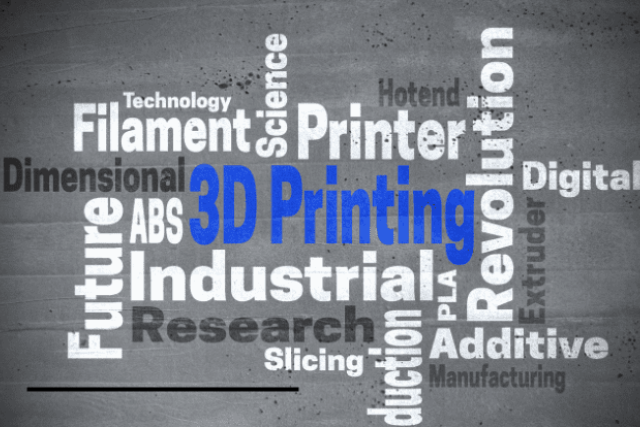
In Dubai, a city known for its rapid growth and demand for cutting-edge solutions, 3D printing is revolutionizing furniture production. One of its most significant advantages is speed, which directly affects furniture availability.
By minimizing production time and enabling on-demand manufacturing, 3D printing addresses supply challenges and enhances the efficiency of Dubai’s furniture market. This article explores how the speed of production impacts furniture availability and the broader implications for the industry.
Accelerating the Manufacturing Process
Traditional furniture manufacturing involves lengthy processes, from material preparation to assembly. In contrast, 3D printing uses additive manufacturing to create furniture layer by layer, drastically reducing production time.
This speed allows manufacturers in Dubai to respond quickly to market demands. For example, a custom chair that might take weeks to craft using traditional methods can be completed in a matter of days with 3D printing. Faster production means more furniture is available to meet the needs of Dubai’s dynamic and fast-paced market.
On-Demand Manufacturing for Real-Time Needs
The speed of 3D printing Dubai enables on-demand manufacturing, which is particularly beneficial in Dubai’s luxury and commercial furniture markets. Rather than maintaining large inventories, manufacturers can produce furniture as orders are received.
This approach reduces the time customers wait for customized pieces. Whether it’s a bespoke dining table for a high-end villa or ergonomic office furniture for a corporate space, 3D printing ensures quick delivery. The ability to manufacture furniture on demand enhances availability without overstocking, aligning perfectly with Dubai’s focus on efficiency.
Customization Without Delays
Customization often adds time to traditional furniture production. However, 3D printing excels at creating personalized designs without extending lead times. Advanced technologies like parametric design and digital modeling streamline the customization process, allowing unique pieces to be produced quickly.
In Dubai, where clients frequently demand tailored solutions, this capability is invaluable. Whether it’s furniture for luxury hotels, modern apartments, or unique retail spaces, 3D printing provides rapid customization. The result is increased availability of high-quality, personalized furniture within tight timeframes.
Rapid Prototyping and Design Iterations
Rapid prototyping is another advantage of 3D printing that impacts furniture availability. Designers can quickly create and test prototypes, refining designs in real time. This reduces the time between concept and production, ensuring furniture reaches the market faster.
Dubai’s furniture industry benefits from this agility, especially in response to changing trends or new customer preferences. By accelerating the design process, manufacturers can introduce new collections more frequently, keeping the market well-supplied with fresh options.
Efficient Use of Resources
The speed of 3D printing is not just about production time—it also extends to resource efficiency. Additive manufacturing minimizes material waste, allowing manufacturers to produce furniture more sustainably and cost-effectively.
In Dubai, this efficiency translates into quicker availability of furniture at competitive prices. By reducing waste and optimizing production, 3D printing supports a faster turnaround without compromising quality, making furniture more accessible to a wider audience.
Impact on Furniture Supply Chains
Traditional furniture production relies heavily on complex supply chains, often involving multiple stages and international shipping. These processes can delay availability, particularly in a global hub like Dubai.
3D printing disrupts this model by enabling local production. Manufacturers can produce furniture within Dubai, bypassing lengthy shipping times and reducing dependence on external suppliers. This localized approach ensures furniture is readily available, even during supply chain disruptions.
Meeting Dubai’s High Demand for Commercial Projects
Dubai’s rapid development drives a constant demand for furniture, particularly in commercial sectors like hospitality, retail, and offices. 3D printing’s speed ensures manufacturers can keep up with these demands.
For example, when a new hotel requires hundreds of customized furniture pieces, 3D printing can produce them quickly and efficiently. This ability to scale production at speed ensures Dubai’s commercial projects stay on schedule, with furniture readily available as needed.
Supporting Temporary and Event-Based Needs
Dubai hosts numerous large-scale events, exhibitions, and expos, each requiring temporary yet high-quality furniture. Traditional manufacturing often struggles to meet such short-term demands due to time constraints.
3D printing fills this gap by enabling rapid production of temporary furniture. Event organizers can order specific designs and receive them within days, ensuring timely availability. This flexibility is essential for Dubai’s vibrant event industry, where speed and customization are critical.
Enabling Faster Design Trends
Dubai’s furniture market is influenced by rapidly changing design trends. Keeping up with these trends requires a production method that is both flexible and fast.
3D printing meets this need by enabling designers to experiment with and implement new styles quickly. From modern minimalism to intricate Arabic-inspired patterns, manufacturers can respond to trends almost instantly. This responsiveness ensures the market remains stocked with furniture that reflects current tastes, enhancing availability and customer satisfaction.
Reducing Lead Times for Luxury Pieces
Luxury furniture often involves intricate designs and premium materials, which can extend production times using traditional methods. However, 3D printing reduces these lead times significantly.
For instance, a custom-made luxury armchair with complex detailing can be completed in a fraction of the time. This speed ensures Dubai’s luxury market remains well-supplied with exclusive furniture, meeting the high expectations of its elite clientele.
Fostering Innovation in Modular Designs
The modular design trend is gaining traction in Dubai’s furniture market. 3D printing supports this trend by producing interchangeable furniture components quickly.
Modular designs are particularly popular in urban settings, where space optimization is key. The speed of 3D printing ensures these versatile pieces are readily available, catering to the needs of Dubai’s modern residents.
Conclusion
The speed of production through 3D printing is revolutionizing furniture availability in Dubai. By accelerating manufacturing, enabling on-demand production, and supporting customization, 3D printing ensures the market remains well-supplied. This rapid production capability aligns perfectly with Dubai’s dynamic lifestyle, high demand, and luxury-focused economy.
Whether for large-scale commercial projects, bespoke residential pieces, or temporary event setups, 3D printing delivers furniture quickly and efficiently. As Dubai continues to embrace innovation, the role of 3D printing in ensuring furniture availability will only grow, shaping the future of the industry.




Leave a Reply